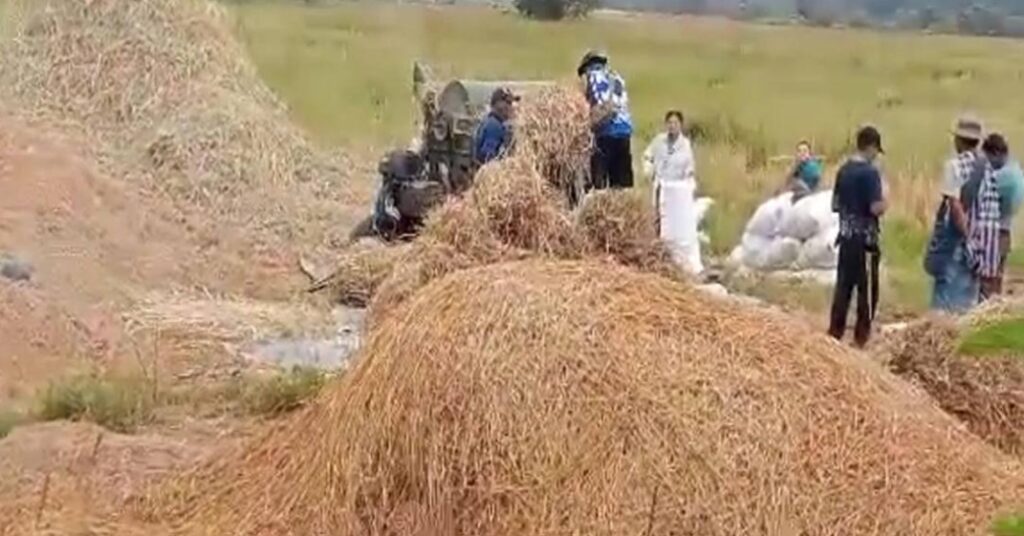
The local farmers said they dared not store the harvested rice in Pulaw Township as the region was not peaceful. When the military council troops entered the village, they had to leave their homes and run away. Farmers say when there is no one at home, the stored rice is being stolen by thieves and the barns are being burned, so they have to sell the harvested rice at a bargain price.
“If the army comes in, we cannot carry the stored grains. We could at most carry two baskets. While avoiding other places, there is nothing left for the thieves and the army to eat together.” A local farmer from Kare village talked about what happened in the village last year.
In Pulaw Township, where the right to import rice has been cut down, the farmers are selling the harvested rice (to prevent loss for various reasons), despite the possibility of a shortage of rice in the rainy season.
In addition, farm owners dare not store rice because there are reports that there will be fights in the city this year.
“Rumors say there would be massive battles in town, and the resistance forces would win in the next two months. So, we sold the harvested rice as quickly as possible without thinking much about the favorable price, stated a woman who planted 4 acres of rice.
According to residents, the price of a basket of new rice was around 8,000 kyats before the seizure of power, but this year it is around 14,000 kyats.
That price is the cost of labor during rice planting and harvesting. Farmers say that considering the cost of renting machines more is needed for the owners of the fields with low rice yields.
According to residents, the price of a basket of new rice was around 8,000 kyats before the coup and is currently at 14,000 kyats.
That market price is not favorable and has little profit when the cost of labor during rice planting and harvesting is deducted. Farmers say that considering the cost of renting machines and labor, it is not profitable enough for the owners of the fields with low rice yields.
Despite not having a good market price, the farmers are unable to store rice but sell it at a low price due to the instability of the region.
At the end of 2022, in the fire of Tanshin, Kade, and To villages, hundreds of homes, including barns, were burned.



